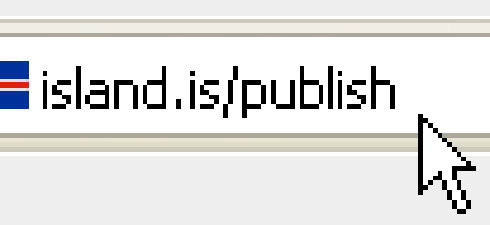As part of the initiative to make Iceland a safe haven for investigative journalists, this week the national parliament in Reykjavik will vote on a plan to devise new measures to provide journalists and their sources with greater protection, which could enhance freedom of speech worldwide. The project, called the Icelandic Modern Media Intiative, was officially tabled for discussion in parliament on 16 February by a number of MPs mobilised by representatives of the website WikiLeaks, which specialises in the publication of scoops and investigative journalism source documents. If the initiative obtains the necessary support, the government will task parliament to design a range of laws designed to protect journalists and their sources. In the long term, the new legislation could create a favourable environment for newspapers, television channels and websites from around the world who chose to locate offshore offices in Iceland.
The legislative package will incorporate "good practices" from other states into Icelandic law, explains Julian Assange, a member of the editorial board of Wikileaks. "There are good laws in a number of countries, but none of them has all of the good laws." Wikileaks, which has a network of servers at strategic locations around the world, has remained immune to prosecution because it has the ability to bounce leaked information to countries where the legal environment is non threatening. Over the last three years, over 100 cases have been filed against the site, but none of them have succeeded. The proposal presented to the Icelandic government is based on this experience.
Putting an end to libel tourism
The new legislation will be designed to offer bullet-proof legal protection to whistle blowers, as well as high-powered protection for communications between journalists and their sources, and will notably include measures to counter libel tourism — an abusive practice which involves the filing of libel claims in countries where libel laws are strictest, regardless of the actual physical location of the plaintiff and the defendant. On the basis of these proposals, defendants in libel cases will be able to launch counter suits, which target the libel tourists attacking them, in Icelandic courts. Andrew Scott, from the law department of the London School of Economics believes that the measures "will transform simple Icelandic journalists into judicial superheroes that are beyond the reach of international courts for reports filed in their country."
The package would not only provide protection for journalists, but also for publishers, internet service providers and other intermediaries. As Julian Assange explains, "the idea is not to make Iceland a haven for tabloids, pedophiles or similar low-level activities. Anything that is illegal will still be illegal -- the resolution will not change that. The idea is merely to create a framework of increased protection whereby investigative journalism and free speech can thrive, which will attract journalists and media businesses from all over the world."
Iceland was chosen because the politicians there are receptive to change. The country's ranking in the top ten of the Reporters Without Borders Press Freedom Index in 2008 and 2009 is a testament to the fact that it already has some of the world's best conditions for press freedom. The editors of Wikileaks also believe that there is considerable political will for this type of reform in Iceland, where various local media organizations have already been targeted by "libel tourist attacks."
Was this article useful? If so we are delighted!
It is freely available because we believe that the right to free and independent information is essential for democracy. But this right is not guaranteed forever, and independence comes at a cost. We need your support in order to continue publishing independent, multilingual news for all Europeans.
Discover our subscription offers and their exclusive benefits and become a member of our community now!












